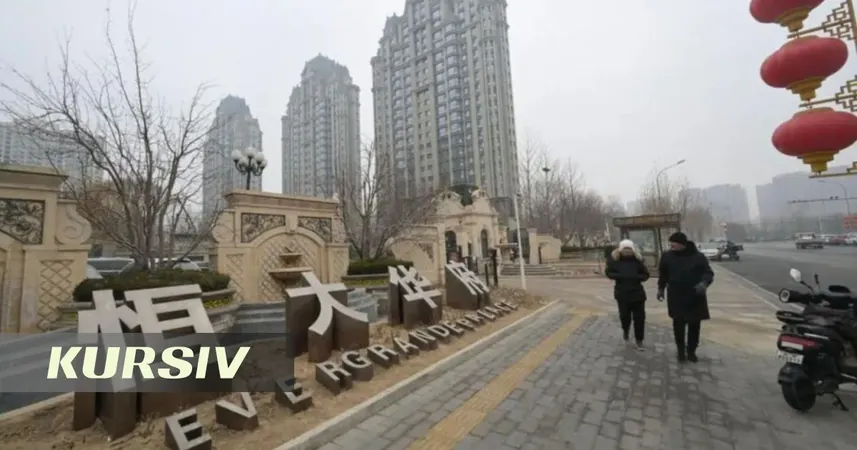
Evergrande's Shocking Delisting: The Fall of China's Real Estate Titan
2025-08-25
Author: Ling
Evergrande's Fall from Grace
In a dramatic turn of events, Chinese property giant Evergrande has officially been delisted from the Hong Kong Stock Exchange, putting a definitive end to a tumultuous 15-year journey. Once celebrated as the largest real estate developer in China, its legacy now stands in stark contrast to its former glory.
From Billion-Dollar Empire to Bankruptcy
At its zenith, Evergrande boasted a staggering valuation of over $50 billion. However, the company has since descended into chaos, grappling with debts exceeding a mind-boggling $300 billion, making it the world’s most indebted property developer. This catastrophic decline has ignited a widespread crisis in the real estate sector, casting a long shadow over China’s economy.
A Billionaire's Plummet
Hui Ka Yan, Evergrande's founder and once Asia's wealthiest individual, has witnessed his fortune evaporate—from $45 billion in 2017 to less than $1 billion today. His misfortunes culminated in being fined and lifetime banned from China's capital markets as regulators uncovered a staggering $78 billion financial misrepresentation.
A Collapsed Empire
Evergrande's vast empire included ambitious housing projects across 280 cities, a budding electric car division, and Guangzhou FC, which was once the pride of Chinese football but faced expulsion from the league earlier this year. The company’s unraveling has sent shockwaves through the industry and community.
Liquidation Looms on the Horizon
Experts anticipated this delisting after a Hong Kong court mandated the company’s liquidation earlier this year. To date, liquidators have managed to recover a mere $255 million in assets against a staggering $45 billion in liabilities, illustrating the depth of the crisis.
The Broader Economic Impact
Evergrande’s downfall has exacerbated China’s property crisis, dampening consumer spending, depleting household savings, and triggering widespread layoffs in the construction sector. Once a cornerstone of the Chinese economy, the real estate market, which represented nearly a third of the economy, is now experiencing a dramatic downturn, with housing prices plummeting by at least 30%.
Government's Efforts Fall Short
In an attempt to counteract this economic dip, Beijing has rolled out various stimulus measures, including housing incentives and support for the electric vehicle sector. However, analysts remain skeptical about a robust recovery. Goldman Sachs forecasts that property prices in China will continue their downward trend until at least 2027, with warnings that more prominent developers may soon find themselves in a similar predicament.
Looking Ahead
As the saga continues, the next crucial liquidation hearing for Evergrande is set for September. The fate of the company—and its ripple effects on the entire Chinese economy—remains a pressing concern for investors and analysts alike.



 Brasil (PT)
Brasil (PT)
 Canada (EN)
Canada (EN)
 Chile (ES)
Chile (ES)
 Česko (CS)
Česko (CS)
 대한민국 (KO)
대한민국 (KO)
 España (ES)
España (ES)
 France (FR)
France (FR)
 Hong Kong (EN)
Hong Kong (EN)
 Italia (IT)
Italia (IT)
 日本 (JA)
日本 (JA)
 Magyarország (HU)
Magyarország (HU)
 Norge (NO)
Norge (NO)
 Polska (PL)
Polska (PL)
 Schweiz (DE)
Schweiz (DE)
 Singapore (EN)
Singapore (EN)
 Sverige (SV)
Sverige (SV)
 Suomi (FI)
Suomi (FI)
 Türkiye (TR)
Türkiye (TR)
 الإمارات العربية المتحدة (AR)
الإمارات العربية المتحدة (AR)